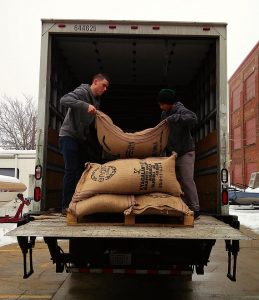President Museveni has identified agricultural Irrigation and regional integration as the two incentives that will propel the growth of Uganda’s industrial sector.
Museveni, who was presiding over the launch of a book on Uganda’s Industrialization journey authored by the Minister of General Duties in the Office of the Prime Minister Mary Karooro Okurut at State House Entebbe on Monday, noted that Uganda was now firmly on the road to transformation, having put in place “the key enablers for a modern economy.”
“The traditional determinants of investment in an economy are three – Infrastructure, electricity, and the cost of money. We have been able to work on the roads, and we now have surplus electricity. On money, we’re progressively recapitalizing UDB (Uganda Development Bank) to bring down the cost of credit for Industrialists,” he said.
He argued that these interventions have encouraged production, noting that in many parts of the country, the challenge is now overproduction. “The Basoga are now complaining of too much sugarcane- too much sugar which is leading to a fall in prices. The Banyankore are complaining about too much milk. Even the Batooro are now producing bananas, which used to be a staple for Ankole,” he said.
Recent years have seen a remarkable increase in local milk production, from 2.08billion liters in 2015 to 2.5billion liters at the end of last year, according to the Dairy Development Authority, yet only 20% of the milk is consumed locally. Uganda also remains the largest producer of sugar in East Africa. The Uganda Sugar Manufacturers Association estimates that Uganda produced over 428,000 metric tons of sugar last year, yet only about 370,000 tons were locally consumed, leaving a surplus of nearly 60,000 metric tons.
Museveni says the solution to overproduction will be farther integration of the East African Community, noting that an integrated East Africa guarantees a bigger market. Uganda remains a net exporter of agro-products to the region, and during his State Visit to Kenya in March this year, Museveni was able to negotiate for the removal of several non-tariff barriers affecting Uganda’s exports there, from sugar to poultry products. In particular, Kenya agreed to increase its sugar import quarters from Uganda from 36
To farther ease regional trade, Museveni reiterated the government’s commitment to building the Standard Gauge Railway, noting that it would significantly lower the cost of transporting a container from Mombasa to Kampala from the current $3500 to $1500.
Earlier, the Minister of Trade, Industry and Cooperatives Amelia Kyambadde presented a buoyant picture of Uganda’s industrial sector, noting that at 5.8%, the sector had the second most impressive growth after services in the last financial year, led by the cement & iron and steel industries. She noted that from just 80 factories in 1986, Uganda now boasts of over 4000 factories.
In response, Museveni attributed the gains to peace, stability and the “freeing of the private sector” that allowed investments into the country, giving the economy much needed momentum after the ravages of war.
“The next step for us is to pay our scientists better to produce innovative research, and invest in irrigation to stabilize Agriculture so that we can have a reliable supply of raw materials for these industries,” Museveni said.
In his 2019/2020 budget speech in June this year, Finance Minister Matia Kasaija acknowledged that continued overdependence on weather patterns was undermining the Agriculture Sector’s productivity, and allocated shs.1054billion for financing irrigation infrastructure. Specifically, Kasaija noted that 5 micro-irrigation schemes would be set up in the districts of Alebtong, Kabarole, Katakwi, Ntoroko and Gomba districts. He also noted that Shs.178billion would be set aside to fund industrial research and innovation.
Karooro’s book titled “Uganda’s March to Industrialization 1986-2040,” tells the story of Uganda’s efforts at Industrialization through a historical political economy perspective, noting how political instability between 1966 and 1986 affected Uganda’s economy and undermined Uganda’s hitherto industrial promise. It then captures the initial steps taken by the NRM government to resuscitate the economy when it came to power in 1986, and the proceeding reforms and struggles it has had to deal with in a bid to build an industrial economy since then.
The post Museveni Looks to Irrigation and Regional Market to Deliver Uganda’s Industrial Promise appeared first on The Cooperator News.


